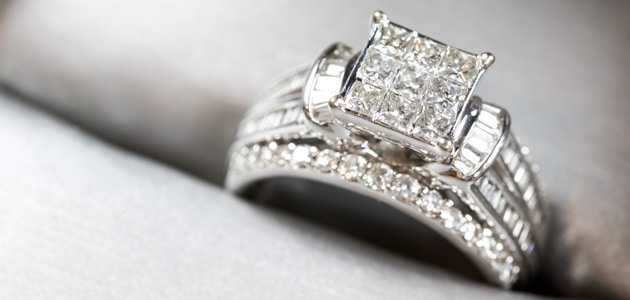Billionaire Is Suing Ex To Get $250,000 Engagement Ring Back- Does She Have To Return It?

[Source: Bravo]
Celebrity Divorce Lawyer Peter M. Walzer explains if you have to return an engagement ring.
Is it considered a gift or not?
And he’s suing for more than just the ring.
The wacky shirt designer wants the $180,000 ring back (which his lawyers say is now worth $250,000) … along with $15,000 in damages.
It started when he got engaged to Ivie Gabrielle Slocumb, but she broke off the engagement in May, and now he’s filed a lawsuit in Florida circuit court, “demanding the return of the ring . . . on multiple occasions.”
While he insists she “received the ring as a conditional gift,” and was only hers if she walked down the aisle, she will not return it.
The ring itself is a 8.24-carat cushion-cut diamond with two tapered baguette diamonds.
Who is right? Who is wrong?
One top family attorney knows the laws when it comes to who keeps the jewels.
“It really depends on who actually initiated the break-up,” says Peter Walzer, partner of top Los Angeles based family law firm Walzer Melcher.
Most of the time, if you believe a marriage will happen, and your partner (now ex) called it off, the ring is rightfully yours because they failed to fulfill a promise.
If the breakup is mutual, you are also legally entitled to get the ring back.
If the ring gifter calls off the wedding, they don’t have a right to the ring — it’s considered a gift and it’s yours.
If the ring is given on a holiday or birthday (before the marriage), it is considered a gift.
If you get an engagement ring and later divorce, the ring is yours.
According to Family Find Law, the law requires three elements to constitute a gift: The giver’s intent to give the item as a gift, the giver’s actual giving of the gift to the receiver, and the receiver’s acceptance of the gift.
“In most cases involving revoked gifts, where all three requirements were shown, the court held that the given item was a gift, and the receiver got to keep the item.”
But an engagement ring is considered a conditional gift, “one where the giver gives the gift to the receiver with the expectation that some future event or action will take place.”
“If the agreed-upon event does not occur or the agreed-upon condition is not met, then the gift-giver has the right to get the gift back. The majority of courts classify engagement rings as a conditional gift, and award the engagement ring to the giver in broken engagement cases.”
Most states follow the no-fault, conditional gift approach and award the engagement ring to the giver in a broken engagement. There are still a few states, like Montana, that classify the engagement ring as an unconditional gift and award the ring to the receiver in broken engagements.”

